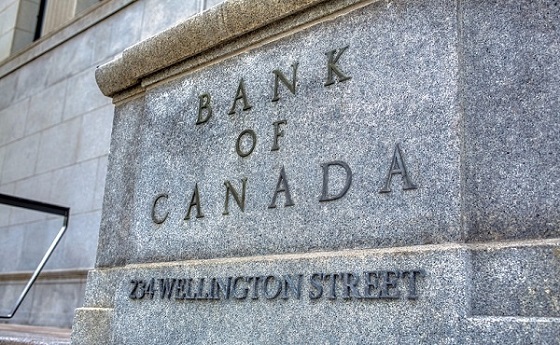Banks
Scrapping net-zero commitments step in right direction for Canadian Pension Plan

From the Fraser Institute
By Matthew Lau
And in January, all of Canada’s six largest banks quit the Net-Zero Banking Alliance, an alliance formerly led by Mark Carney (before he resigned to run for leadership of the Liberal Party) that aimed to align banking activities with net-zero emissions by 2050.
The Canada Pension Plan Investment Board (CPPIB) has cancelled its commitment, established just three years ago, to transition to net-zero emissions by 2050. According to the CPPIB, “Forcing alignment with rigid milestones could lead to investment decisions that are misaligned with our investment strategy.”
This latest development is good news. The CPPIB, which invest the funds Canadians contribute to the Canada Pension Plan (CPP), has a fiduciary duty to Canadians who are forced to pay into the CPP and who rely on it for retirement income. The CPPIB’s objective should not be climate activism or other environmental or social concerns, but risk-adjusted financial returns. And as noted in a broad literature review by Steven Globerman, senior fellow at the Fraser Institute, there’s a lack of consistent evidence that pursuing ESG (environmental, social and governance) objectives helps improve financial returns.
Indeed, as economist John Cochrane pointed out, it’s logically impossible for ESG investing to achieve social or environmental goals while also improving financial returns. That’s because investors push for these goals by supplying firms aligned with these goals with cheaper capital. But cheaper capital for the firm is equivalent to lower returns for the investor. Therefore, “if you don’t lose money on ESG investing, ESG investing doesn’t work,” Cochrane explained. “Take your pick.”
The CPPIB is not alone among financial institutions abandoning environmental objectives in recent months. In April, Canada’s largest company by market capitalization, RBC, announced it will cancel its sustainable finance targets and reduce its environmental disclosures due to new federal rules around how companies make claims about their environmental performance.
And in January, all of Canada’s six largest banks quit the Net-Zero Banking Alliance, an alliance formerly led by Mark Carney (before he resigned to run for leadership of the Liberal Party) that aimed to align banking activities with net-zero emissions by 2050. Shortly before Canada’s six largest banks quit the initiative, the six largest U.S. banks did the same.
There’s a second potential benefit to the CPPIB cancelling its net-zero commitment. Now, perhaps with the net-zero objective out of the way, the CPPIB can rein in some of the administrative and management expenses associated with pursuing net-zero.
As Andrew Coyne noted in a recent commentary, the CPPIB has become bloated in the past two decades. Before 2006, the CPP invested passively, which meant it invested Canadians’ money in a way that tracked market indexes. But since switching to active investing, which includes picking stocks and other strategies, the CPPIB ballooned from 150 employees and total costs of $118 million to more than 2,100 employees and total expenses (before taxes and financing) of more than $6 billion.
This administrative ballooning took place well before the rise of environmentally-themed investing or the CPPIB’s announcement of net-zero targets, but the net-zero targets didn’t help. And as Coyne noted, the CPPIB’s active investment strategy in general has not improved financial returns either.
On the contrary, since switching to active investing the CPPIB has underperformed the index to a cumulative tune of about $70 billion, or nearly one-tenth of its current fund size. “The fund’s managers,” Coyne concluded, “have spent nearly two decades and a total of $53-billion trying to beat the market, only to produce a fund that is nearly 10-per-cent smaller than it would be had they just heaved darts at the listings.”
Scrapping net-zero commitments won’t turn that awful track record around overnight. But it’s finally a step in the right direction.
Banks
Top Canadian bank studies possible use of digital dollar for ‘basic’ online payments

From LifeSiteNews
A new report released by the Bank of Canada proposed a ‘promising architecture well-suited for basic payments’ through the use of a digital dollar, though most Canadians are wary of such an idea.
Canada’s central bank has been studying ways to introduce a central bank digital currency (CBDC) for use for online retailers, according to a new report, despite the fact that recent research suggests Canadians are wary of any type of digital dollar.
In a new 47-page report titled, “A Retail CBDC Design For Basic Payments Feasibility Study,” which was released on June 13, 2025, the Bank of Canada (BOC) identified a “promising architecture well-suited for basic payments” through the use of a digital dollar.
The report reads that CBDCs “can be fast and cheap for basic payments, with high privacy, although some areas such as integration with retail payments systems, performance of auditing and resilience of the core system state require further investigation.”
While the report authors stopped short of fully recommending a CBDC, they noted it is a decision that could happen “outside the scope of this analysis.”
“Our framing highlights other promising architectures for an online retail CBDC, whose analysis we leave as an area for further exploration,” reads the report.
When it comes to a digital Canadian dollar, the Bank of Canada last year found that Canadians are very wary of a government-backed digital currency, concluding that a “significant number” of citizens would resist the implementation of such a system.
Indeed, a 2023 study found that most Canadians, about 85 percent, do not want a digital dollar, as previously reported by LifeSiteNews.
The study found that a “significant number” of Canadians are suspicious of government overreach and would resist any measures by the government or central bank to create digital forms of official money.
The BOC has said that it would continue to look at other countries’ use and development of CBDCs and will work with other “central banks” to improve so-called cross border payments.
Last year, as reported by LifeSiteNews, the BOC has already said that plans to create a digital “dollar,” also known as a central bank digital currency (CBDC), have been shelved.
Digital currencies have been touted as the future by some government officials, but, as LifeSiteNews has reported before, many experts warn that such technology would restrict freedom and could be used as a “control tool” against citizens, similar to China’s pervasive social credit system.
The BOC last August admitted that the creation of a CBDC is not even necessary, as many people rely on cash to pay for things. The bank concluded that the introduction of a digital currency would only be feasible if consumers demanded its release.
Conservative Party leader Pierre Poilievre has promised, should he ever form the government, he would oppose the creation of a digital dollar.
Contrast this to Canada’s current Liberal Prime Minister Mark Carney. He has a history of supporting central bank digital currencies and in 2022 supported “choking off the money” donated to the Freedom Convoy protests against COVID mandates.
Banks
Liberal border bill could usher in cashless economy by outlawing cash payments

From LifeSiteNews
Bill C-2 has raised concerns from legal organizations that warn it could lead to a cashless economy in Canada by banning cash payments over $10,000.
The Liberals’ proposed border legislation may quietly usher in a cashless economy by banning cash payments.
On June 3, the Liberal Party introduced Bill C-2 to strengthen border security and outlaw cash payments over $10,000. Legal organizations have since warned that this is the first step to a cashless economy and digital ID system in Canada.
“Part 11 amends the Proceeds of Crime (Money Laundering) and Terrorist Financing Act to prohibit certain entities from accepting cash deposits from third parties and certain persons or entities from accepting cash payments, donations or deposits of $10,000 or more,” the legislation proposes.
While the bill purports to strengthen border security and restore Canada-U.S. relations, many have warned that government regulation of cash payments is a slippery slope.
In a June 4 X post, the Justice Centre for Constitutional Freedoms (JCCF) warned that “If Bill C-2 passes, it will become a Criminal Code offence for businesses, professionals, and charities to accept cash donations, deposits, or payments of $10,000 or more. Even if the $10,000 payment or donation is broken down into several smaller cash transactions, it will still be a crime for a business or charity to receive it.”
The JCCF pointed out that while cash payments of $10,000 are not common for Canadians, the government can easily reduce “the legal amount to $5,000, then $1,000, then $100, and eventually nothing.”
“Restricting the use of cash is a dangerous step towards tyranny and totalitarianism,” the organization warned. “Cash gives citizens privacy, autonomy, and freedom from surveillance by government and by banks, credit card companies, and other corporations.”
“If we cherish our privacy, we need to defend our freedom to choose cash, in the amount of our choosing,” it continued. “This includes, for example, our right to pay $10,000 cash for a car, or to donate $10,000 (or more) to a charity.”
“Law enforcement already has the tools to fight crime,” JCCF declared. “Perhaps they need a bigger budget to hire more people, or perhaps they need to use existing tools more effectively. In a free society, violating our right to use cash is not the answer.”
A move to restrict Canadians’ use of cash is especially concerning as citizens already saw what a Liberal government will do to those who oppose its narrative during the 2022 Freedom Convoy.
In winter 2022, the Liberal government, under former Prime Minister Justin Trudeau, froze the bank accounts of those who donated to the Freedom Convoy, which featured thousands of Canadians camping in front of Parliament to protest COVID mandates.
Similarly, Liberal Prime Minister Mark Carney’s move to restrict Canadians is hardly surprising considering his close ties to the World Economic Forum and push for digital currency.
In a 2021 article, the National Post noted that “since the advent of the COVID pandemic, Carney has been front and centre in the promotion of a political agenda known as the ‘Great Reset,’ or the ‘Green New Deal,’ or ‘Building Back Better.’
“Carney’s Brave New World will be one of severely constrained choice, less flying, less meat, more inconvenience and more poverty,” the outlet continued.
In light of Carney’s new leadership over Canadians, many are sounding alarm over his distinctly anti-freedom ideas.
Exposing Mark Carney:
“Should sex be up for sale” 😮
“Should there be a market for the right to have children?” 🤯 pic.twitter.com/Q4hftgGIMc
— Mario Zelaya (@mario4thenorth) March 21, 2025
Carney, whose ties to globalist groups have had Conservative Party leader Pierre Poilievre call him the World Economic Forum’s “golden boy”. He has also previously endorsed the carbon tax and even criticized Trudeau when the tax was exempted from home heating oil in an effort to reduce costs for some Canadians.
Carney, who as reported by LifeSiteNews, has admitted he is an “elitist” and a “globalist.” Just recently, he criticized U.S. President Donald Trump for targeting woke ideology and has vowed to promote “inclusiveness” in Canada.
Carney also said that he is willing to use all government powers, including “emergency powers,” to enforce his energy plan.
-

 conflict1 day ago
conflict1 day agoPete Hegseth says adversaries should take Trump administration seriously
-

 conflict1 day ago
conflict1 day agoTrump urges Iran to pursue peace, warns of future strikes
-

 Business1 day ago
Business1 day agoHigh Taxes Hobble Canadian NHL Teams In Race For Top Players
-

 Energy1 day ago
Energy1 day agoEnergy Policies Based on Reality, Not Ideology, are Needed to Attract Canadian ‘Superpower’ Level Investment – Ron Wallace
-

 conflict1 day ago
conflict1 day ago“Spectacular military success”: Trump addresses nation on Iran strikes
-

 conflict1 day ago
conflict1 day agoU.S. cities on high alert after U.S. bombs Iran
-

 conflict11 hours ago
conflict11 hours agoHow Iran Could Shake Up Global Economy In Response To US Strikes
-

 armed forces1 day ago
armed forces1 day agoHow Much Dollar Value Does Our Military Deliver?





